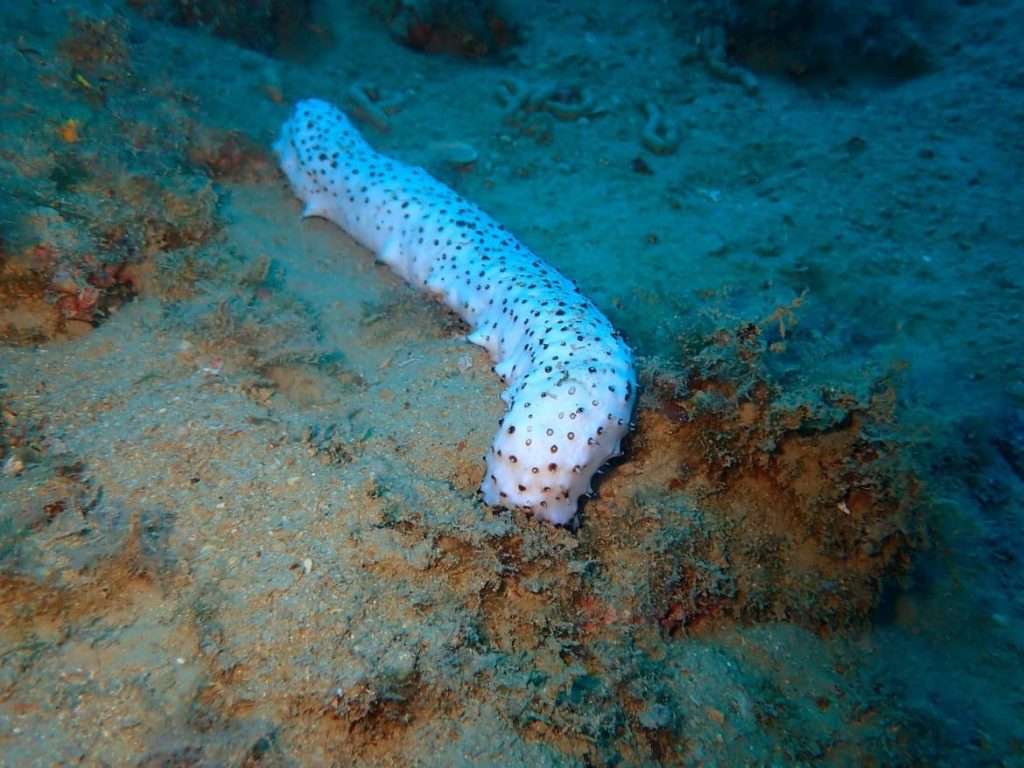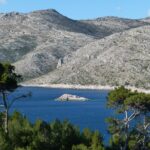July the 6th, 2024 – A rare albino sea cucumber has been filmed in Croatian waters. Albino examples of these creatures are far from commonplace.
As Poslovni Dnevnik writes, divers from the Rostrum Underwater Activities Association from Split came across something quite rater in the waters around Čiovo – an albino sea cucumber (ocnus planci).
“In scientific literature, there aren’t very many recorded findings of albino sea cucumbers anywhere in the world. One of the rare sightings was precisely from the northern Adriatic back in 2006, when an albino sea cucumber of the species Ocnus planci was observed,” explained Pero Ugarković from the Institute of Oceanography and Fisheries, as reported by Morski.hr.
“The UPA Rostrum divers left the albino cucumber in the sea, as anyone who comes across one always should. This is because is important that the sea cucumber fulfils its extremely significant natural role in Croatian waters, this time at the bottom of the Čiovo seabed,” said Ugarković.
capturing sea cucumbers is strictly prohibited
Sea cucumbers are extremely important for the functioning of the ecological system of the entire marine world and seabed. Today, removing them from the sea is strictly prohibited because they are in permanent fallow. However, this law unfortunately does not prevent irresponsible individuals along the Croatian coast hunting them and smuggling them to be sold in restaurants in Italy, Greece, Turkey and further afield in Asia.
“Sea cucumbers are very beneficial to the seabed on several levels. First of all, they stir up the seabed and make it softer, thus enabling easier oxygenation. Then it sucks out the sediment from the bottom and uses nutrients from it for its own needs (everything is found where the sea cucumbers feast, from some small organisms that have fallen to the bottom, parts of plants and biological material animal origin, fungi etc). After that, it releases this purified sediment-sand back out into the environment where the nutrients can be found for other organisms in the sea, and in addition, some dissolved chemical compounds (nitrates, phosphates…) are released into the environment which again can be absorbed by other organisms. They again serve as food for other organisms, which is a phenomenal natural recycling process.
However, the the most important thing of all is that adult sea cucumbers can “purify” a massive 5-10 kg of sand per month. Now try to imagine how much sand they process annually. The next time you see an area full of sea cucumbers, don’t be disgusted, because rest assured, the sand in that cove is cleaner and healthier than in the coves where we have blackened the name of these valuable and self-effacing organisms for some selfish reason. Whether it’s for profit from sales, apartment building with sewage spewing out into the sea, by dumping or other reasons, there are areas where we no longer have the crystal clear seawater that we used to be proud of”, Đani Iglić, a professional diver from Bibinje and author of several books on native Adriatic species, told Morski.hr.
Albino sea cucumbers in Croatian waters are a rare sight. Should you come across one, make sure to take a photo, but leave it well alone.










